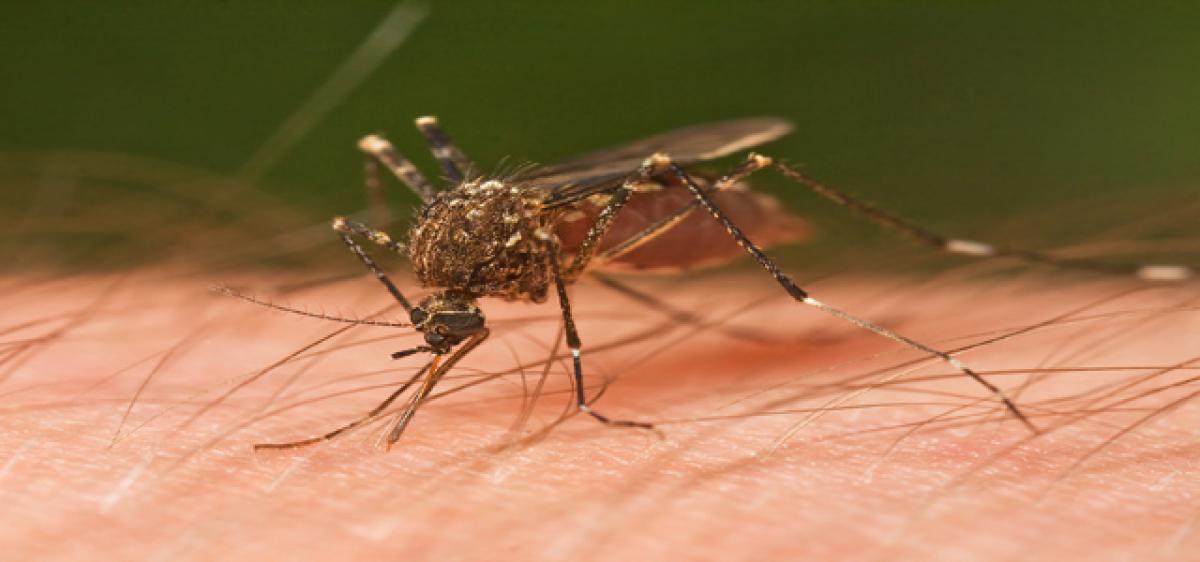Live
- SBI rescues sr citizen from `46L cyber fraud
- 12-yr-old dies of electrocution
- Installation of smart meters opposed
- State Cabinet expansion in focus as CM leaves for Delhi
- Need to reintroduce country’s forgotten pride: Bhagwat
- Pant shatters Iyer's IPL auction record, sold to Super Giants for Rs 27 cr
- Yuva Sangeetha Sammelanam held
- Dharani proves a bane for 25K families across State
- Reckless, Dangerous Arms Race
- Russia needs a peace deal as it is running out of soldiers
Just In

Some mosquitoes are more likely to feed on cattle than on humans if they carry a specific chromosomal rearrangement in their genes, thus reducing their odds of transmitting the malaria parasite, a new study has found.
New York: Some mosquitoes are more likely to feed on cattle than on humans if they carry a specific chromosomal rearrangement in their genes, thus reducing their odds of transmitting the malaria parasite, a new study has found.
The parasite causing the disease is carried by Anopheles mosquitoes species that transmit it to humans by biting them. One of these species is Anopheles arabiensis, which is the primary vector of malaria in East African countries.
Rates of malaria transmission depends on whether mosquitoes bite humans. When mosquitoes bite cattle, malaria does not spread because these animals are dead-end hosts.
The transmission also depends whether mosquitoes rest after their meals in areas where they are likely to encounter pesticides, the study said.
Using a population genomics approach, the study established an association between human feeding and a specific chromosomal rearrangement in the major east African malaria vector.
"Whether there is a genetic basis to feeding preferences in mosquitoes has long been debated. This work paves the way for identifying specific genes that affect this critically important trait," said Bradley Main, researcher at the University of California - Davis, in the US.
In the study, the team sequenced the genomes of 23 human-fed and 25 cattle-fed mosquitoes collected indoors and outdoors from the Kilobero Valley in Tanzania.
An analysis of these genomes allowed them to identify a chromosomal rearrangement -- known as the 3Ra inversion -- associated with cattle feeding.
It however did not appear to have an impact on the mosquitoes' resting behaviours. Using genetics to better understand and track mosquito behaviour can improve local control strategies.

© 2024 Hyderabad Media House Limited/The Hans India. All rights reserved. Powered by hocalwire.com







